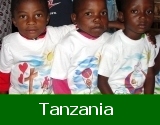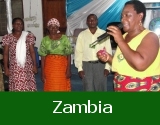 |
Contact usPowerPlay Centres
Youth Ministry
A.B.C.DA.B.C.D TrusteesA.B.C.D DirectorsAfrica PowerClubsMoringa |
home >>powerplay center >>hiv/aids in tanzaina
HIV/ AIDS in Tanzania Information sourced from wikipedia.org Tanzania faces a mature, generalized HIV epidemic. Among the 1.4 million people living with HIV/AIDS, 70.5 percent are 25 to 49 years old, and 15 percent are 15-24 years. In young women ages 15 to 24, there is an HIV prevalence rate of 3.8 percent, which is significantly higher than the 2.8 percent prevalence rate among young men in the same age group. Other populations at high risk for HIV infection include people in prostitution, miners, police officers, prisoners, people in the transport sector, and the military. Like other countries in East Africa, the epidemic in Tanzania has remained stable in recent years, but there has been a recent increase in HIV prevalence among older age groups, with the HIV prevalence rate among women ages 30 to 34 reaching 13 percent. Injecting drug use is also increasing, highlighting the need for improving prevention efforts and expanding access to treatment and care. The greatest challenge facing the health sector is inadequate human resources to deliver quality health services to the Tanzanian population. Since the 1990s, structural adjustment policies and HIV/AIDS have greatly reduced the health-sector workforce. A second challenge is poverty, important because the cost of drugs and health services has constituted a financial barrier to access. Tanzania has formulated its second “Poverty Reduction Strategy” paper to reinforce its commitment to overcoming poverty. Tanzania also continues to struggle with the issue of corruption, with the health care sector being ranked as the second most corrupt sector in the country by the country’s Economic and Social Research Foundation. Due in part to the vast size of the country, health services do not currently meet acceptable quality standards, and access to voluntary counseling and testing services varies greatly. Overall, while services may be available, the human and physical infrastructure is in need of improvement to allow for better quality patient care |
| Copyright © 2022 www.UnitedCaribbean.com. All rights reserved. Disclaimer Click to Contact us |





